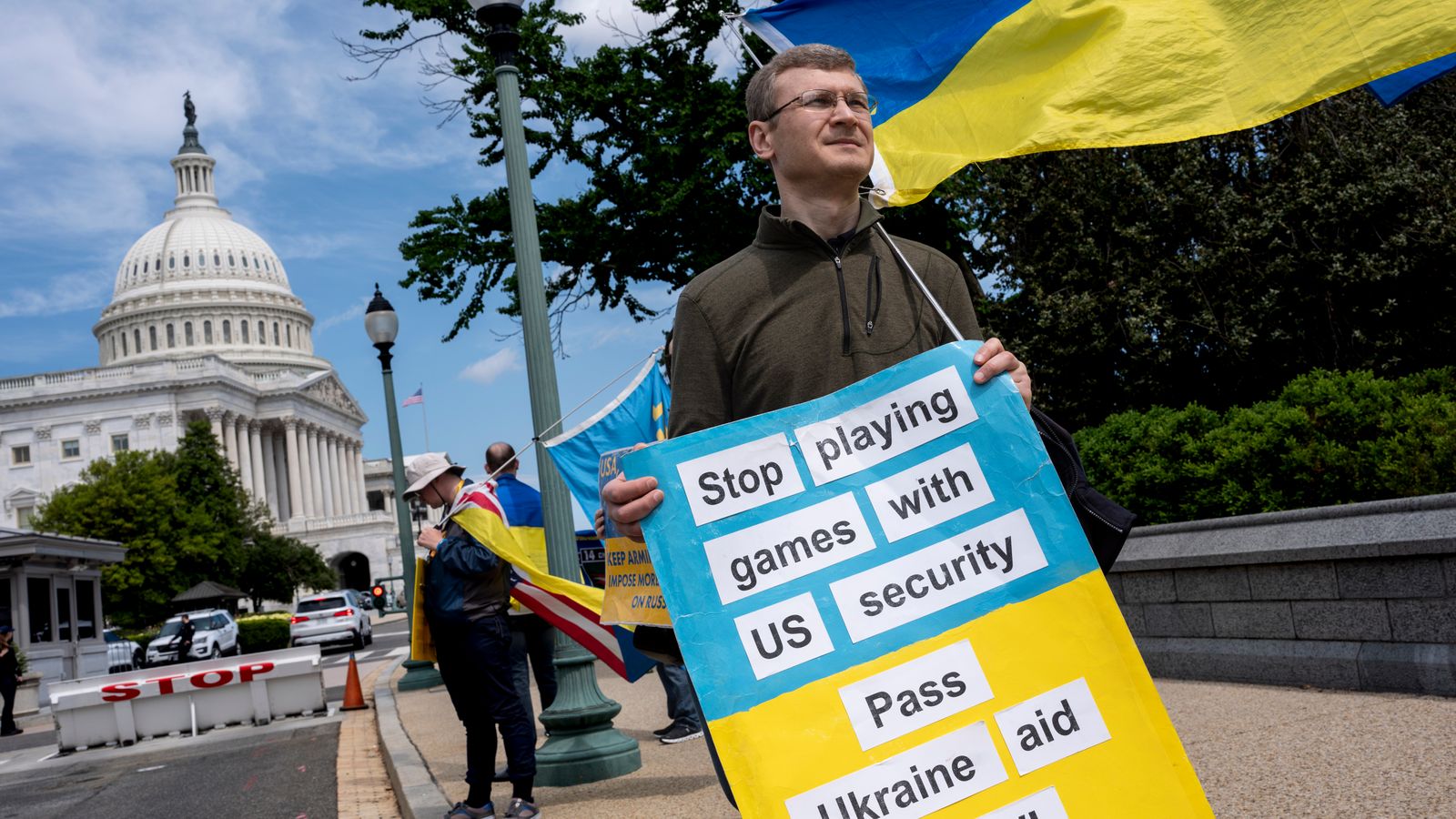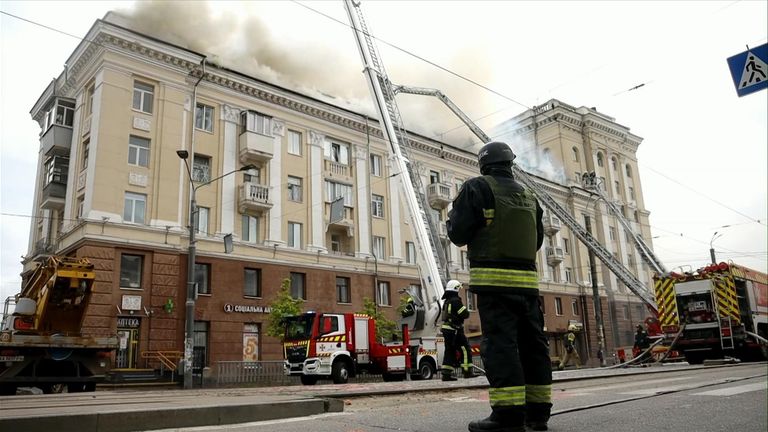The impact of this American blockage has been profound.
I have had multiple conversations with diplomats and military officials in Washington DC and all have said the same thing: the situation for Ukraine is depressing, Russia has the upper hand and prospects for Kyiv, without more weapons, are bleak.
The Ukrainians have been running low on all weapons types, even small arms – bullets for their soldiers’ rifles.
Before the House of Representatives approved the $60.8bn aid package on Saturday, it had been more than 480 days since Congress last passed a bill allowing for American weapons to be sent to Ukraine.
There was a White House budgetary fudge earlier this year which freed up some more cash from an existing bill and allowed for some more weapons to be sent. But it wasn’t enough.
Analysts say Russia’s recent airstrike successes are the consequence of a lack of Ukrainian air defence interceptors.
And on the frontline, the artillery and shell imbalance has been growing by the day. The calculation is that there is now a 10-1 advantage to Russia as its own industrial base works full tilt with near-capacity weapons manufacturing.
Ukraine’s energy supply is also under threat as Russia bombs power stations. The current supply is said to be down to 12 gigawatts, far below what the country needs.
The blockage in America has impacted Ukrainian morale too. The impact for soldiers on the frontline of dwindling supplies is huge.
Sources watching the frontline carefully tell me it is not too late to turn things around but only if an urgent and sustained injection of funding and weapons comes now.
And realists concede “turning things around” no longer means a full Ukrainian victory.
It’s now widely accepted all this probably now ends with a settlement that would see the conflict frozen somewhere along the frontline.
The unknown is where that frontline will sit at the point where a settlement becomes possible.
The further west the line is, the more land Russia has taken.
Crucially too, the country is wider – north to south – in the middle, and so the further west the settlement line ends up being, the longer the border is and the harder it is for Ukraine to fortify and defend in the years ahead.







